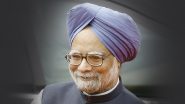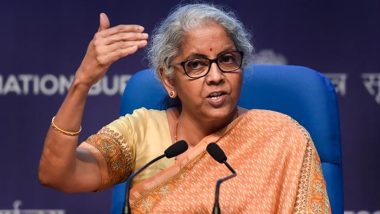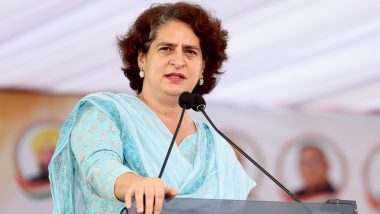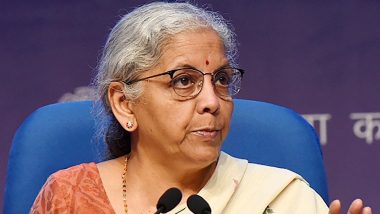New Delhi, June 13: The GST Council, chaired by Finance Minister Nirmala Sitharaman, will meet after a gap of eight months on June 22, and is likely to review the implementation of 28 per cent GST on the online gaming sector. "The 53rd meeting of the GST Council will be held on 22nd June, 2024 at New Delhi," the GST Council Secretariat said in a post on X.
The 52nd meeting of the GST Council, which comprises finance ministers of all states and UTs, was held on October 7, 2023. The agenda for the 53rd meeting is yet to be circulated amongst the Council members. This would be the first Council meeting after Lok Sabha elections. Results of the elections were declared on June 4, and Sitharaman was sworn in as a Cabinet minister in the new Modi Government on June 9. Nirmala Sitharaman Formally Takes Charge of Finance Ministry
The GST Council is likely to review the decision to levy 28 per cent GST on full value of bets for online gaming companies which came into effect from October 1, 2023. In its meetings in July and August, the GST Council had approved amendments to the law to include online gaming, casinos and horse racing as taxable actionable claims, and clarified that such supplies would attract 28 per cent tax on full bet value.
At that time it was said that a review of the implementation would be carried out after six months, which is April 2024. Since no GST Council meeting has taken place since April, the June 22 meeting of the Council is expected to review the taxation of the online gaming sector. Another key pending issue before the GST Council is rate rationalisation and a panel under Uttar Pradesh Finance Minister Suresh Kumar Khanna has been mandated to suggest required rate rationalisation.
The GST Council in its June 22 meeting may decide to fasttrack the process and set a timeline for the panel to submit a final report. The GoM on GST rate rationalisation was set up in September 2021 by the GST Council. The panel had submitted an interim report to the GST Council in June 2022, proposing changes in tax rates for some goods and services to rationalise the levy. Modi Cabinet 2024: Nirmala Sitharaman Retains Finance, Amit Shah Home As Portfolios of PM Narendra Modi 3.0 Announced; Check Full List
The GoM was mandated to suggest required rate rationalisation and correction of inverted duty structure with an objective of simplifying the rate structure, reviewing the GST exemption list and enhancing GST revenues. Currently, the GST regime has five broad tax slabs of zero, 5, 12, 18, and 28 per cent. A cess is levied over and above the highest 28 per cent rate on luxury and demerit goods.
Deloitte India Partner Mahesh Jaising said the expected clarifications on critical matters such as related party free of cost transactions and ESOP taxation are also indicative of policymakers' efforts to engage with industry stakeholders and streamline procedures based on feedback. KPMG in India, Partner and Head (Indirect Tax) Abhishek Jain said multiple clarifications are being looked after to including taxability for the online gaming sector before October, taxability of ESOPs, corporate guarantee taxability, and various rate-related clarifications are also anticipated due to recent litigations.
Shardul Amarchand Mangaldas & Co Partner Rajat Bose said there is a need to address key industry issues like the taxation of online gaming and the promised review of the valuation rules introduced in October 2023. Besides, inverted duty structure in textiles, fertilisers could also be discussed by the Council. Deloitte India Partner MS Mani said the Council will need to take up the keenly awaited rate rationalisation discussion. "In addition, a preliminary effort to include low impact petroleum products such as natural gas within the GST ambit would be highly beneficial to business," Mani said.













 Quickly
Quickly




















